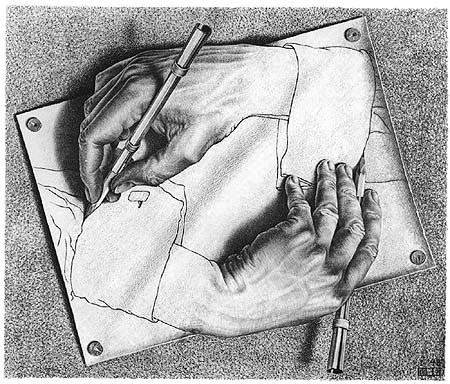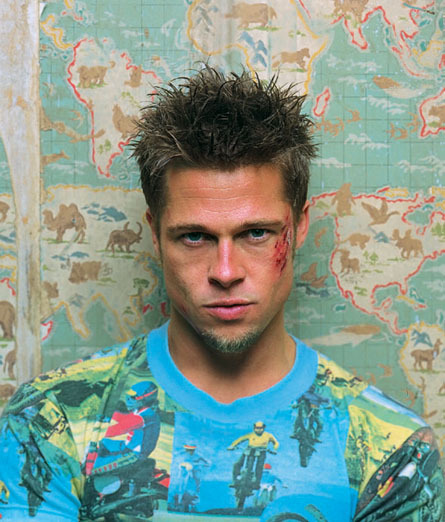Justine Musk's Blog, page 47
January 14, 2010
how to work with your subconscious to write a book that 'hangs together' (so an agent won't reject it)

My agent once told me about a manuscript she was considering for representation. She was enjoying it. She thought it well-written. But when she reached the final page, she knew she would reject it.
"It was too muddled at the center," she said. "I still didn't know what the book was about."
Which reminded me of something writing instructor Donna Levin said when I took a novel workshop with her a decade or so ago in San Francisco: part of the challenge of writing a novel is taking their...
January 12, 2010
5 reasons why I believe this person will one day get published

I joined a writing workshop that takes place once a month in Topanga Canyon and lasts all day. It's the most rewarding workshop I've experienced.
One of the members had a major breakthrough. Her recent pages were a joy to read: "She's writing at a publishable level," I said (when someone's work is being critiqued, we discuss it as if she's not there). Rachel, the workshop leader, nodded and agreed and looked visibly moved: she's been working with this woman for a while now and knows how...
January 7, 2010
WRITING AND SUCCESS IN THE DIGITAL AGE: who are you writing for (and will they want to read you)?

1
One of my favorite blogs to follow is socialmedia rockstar Chris Brogan's. So when Chris blogged about a book he loved (and by a YA author I have much respect for), it was like two wires crossing to spark off a deep, personal pleasure in my own little virtual universe.
I found Chris's post interesting for two reasons.
One, he demonstrates how a reader's engagement with an author (in this case Scott Westerfeld) no longer ends when the final page is turned. Instead of being forced to wait for...
January 6, 2010
how I discovered that a writing coach can be helpful
I'm writing a supernatural thriller called THE DECADENTS. It's a bit different from my previously published novels. It's a book I've been carrying around in my head for a long time. I'm a little afraid to write it.
So I did something I've never done before: I hired a writing coach.
Her name is Rachel, and she wrote a book that I admire and deals with some of the same subject matter that I'm working with, if in a different form. I first saw her years ago at a Black Clock reading at a...
you don't always have to go it alone
I'm writing a book called THE DECADENTS. It's a bit different from my previously published novels. It's a book I've been carrying around in my head for a long time. I'm a little afraid to write it.
So I did something I've never done before: I hired a writing coach.
Her name is Rachel, and she wrote a book that I admire and deals with some of the same subject matter that I'm working with, if in a different form. I first saw her years ago at a Black Clock reading at a bookstore called...
January 5, 2010
conflict, change, loglines and novel 'hooks': talking about the heart of your story

1
In articles and books on writing fiction, we have a tendency to isolate the elements from each other and talk about them as if they're independent entities: this is how you make a plot, this is how you build a character, this is what a theme is, these are the different kinds of conflicts, this is the difference between tension and dramatic suspense, and so on.
We also say things like, Conflict is the heart of storytelling, and Without conflict there is no story. But what does that mean...
January 4, 2010
Tyler Durden's Rules for Writing in the Zone: Conclusion & Takeaway

1
The concept of "flow" was first introduced by Mihály Csíkszentmihályi. In his studies on happiness and creativity, he noticed that people tend to have their most fulfilling experiences through work (instead of controlled leisure time).
"It is a single-minded immersion and represents perhaps the...
January 1, 2010
Tyler Durden's Rules for Writing in the Zone, part 4 (of 5)

"someday you will die and until you know that you are useless to me"
Death can be a teacher and an ally.
When you become aware – truly aware – of your own impending death, it wakes you up to the gift of your life. Every moment takes on a new importance. You learn to engage with the here and now.
You might even contemplate the question, as poet Mary Oliver puts it, "What will you do with your one wild and precious life?"
If you're like successful blogger Chris Guillebeau, you ask yourself...
December 29, 2009
Tyler Durden's Rules for Writing in the Zone, part 3 (of 5)

Part 1 is here.
over here.
"only through destroying myself can I discover the greater power of my spirit"
There is bad destruction and good destruction. Good destruction is the clean ending: knowing when to walk away, make the cut, find resolution and closure. It's the ability to let things go, so that something else may begin.
Creativity is a cycle of destruction and renewal. Old forms get smashed and reinvented, reborn. You trash that manuscript that never sold and take the best...
Tyler Durden's Rules for Writing in the Zone, part 3 (of 4)

Part 1 is here.
over here.
5. "only through destroying myself can I discover the greater power of my spirit"
There is bad destruction and good destruction. Good destruction is the clean ending: knowing when to walk away, make the cut, find resolution and closure. It's the ability to let things go, so that something else may begin.
Creativity is a cycle of destruction and renewal. Old forms get smashed and reinvented, reborn. You trash that manuscript that never sold and take...



